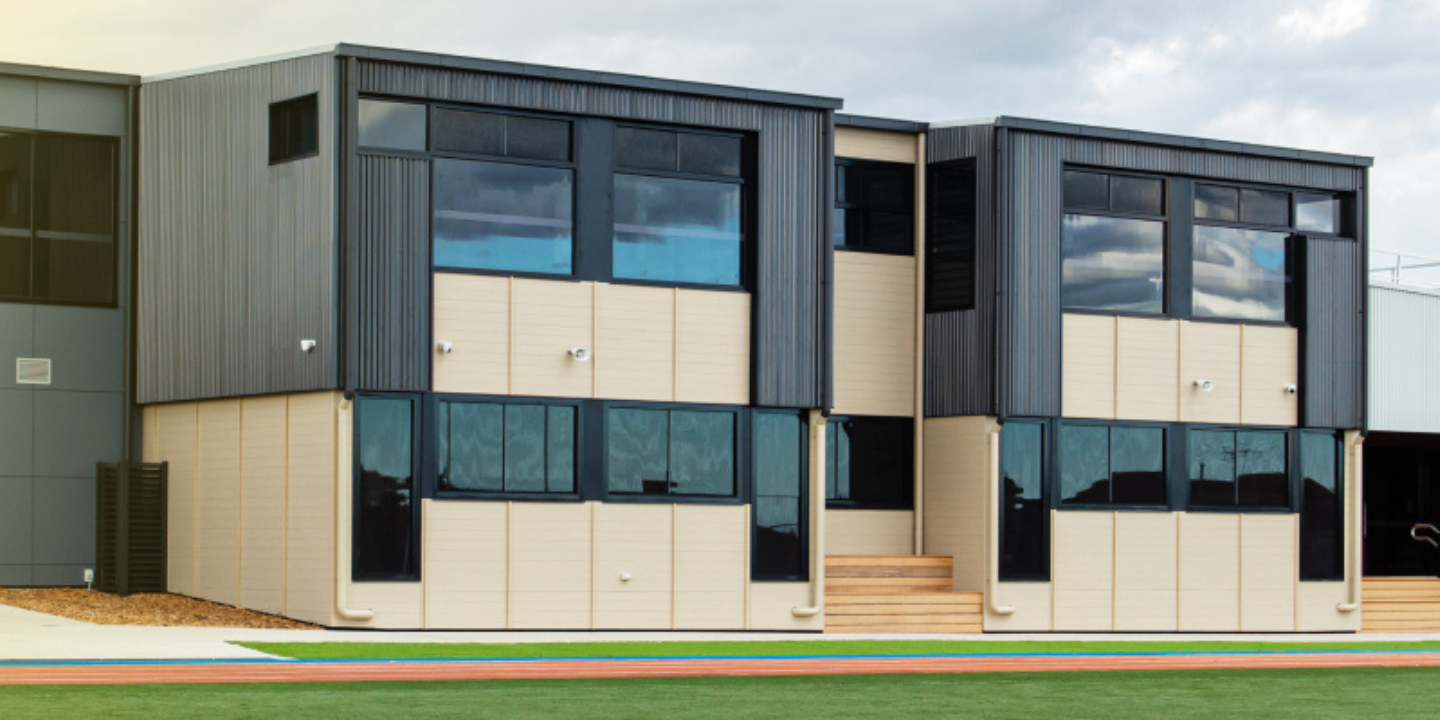Key takeaways
- Early Influences and Background: Bruce Nicholson's upbringing in the Blue Mountains shaped his values of hard work and resilience, inspired by his father's small business challenges during the 1970s recession and later success with Boral valuations.
- Career Path in Construction: From engineering studies at UTS and internships at Boral, Nicholson built expertise at CSR, Rinker, CEMEX, and Holcim, managing projects across Australia, Europe, and North America, emphasising operational discipline and leadership under pressure.
- Leadership at Fleetwood (ASX:FWD): As CEO since 2021, he implemented the "Build, Transform, Grow" strategy to simplify operations, integrate acquisitions, and drive profitability in Building and Community Solutions divisions, while addressing challenges in RV Solutions amid market declines.
- Cultural and People-First Approach: Nicholson prioritises building trust, avoiding politics, and fostering accountability to create a high-performance culture that attracts talent and supports sustainable change in the modular construction sector.
- Modular Construction Trends in Australia: Highlights modular building's role in addressing the housing crisis with speed, cost-efficiency, and ESG benefits like 60% less waste; Fleetwood positions itself as a national leader in scalable, high-quality solutions for infrastructure, education, and accommodation.
- Future Outlook and Investment Ties: Aims to establish Fleetwood as Australia's benchmark for modular innovation, with improved cash flow and dividends signaling stability.
Bruce Nicholson still remembers watching his father come home late from long days running the family’s small business exhausted but fulfilled.
Nicholson, who grew up in the Blue Mountains outside Sydney, had watched his father swap the security of being a property valuer in government for the risks of starting his own small valuing business with two partners. They called it Alcorn Corbin and Nicholson.
1970s Recession Survival and Leadership Lessons
The business went from being crippled by the 1970’s recession, when his father didn’t bring home a salary for six months, to at one point valuing all of building materials giant Boral’s Australian property portfolio. It left a deep impression.
“From him, I learned the value of hard work, the discipline, resilience, and commitment it takes to build something from the ground up,” Nicholson says.
His father passed away five years ago. His mother, for decades a stay-at-home mum to Bruce and his two sisters, is still going strong at the age of 88.
“I saw first-hand the highs and lows of running a business, and that experience gave me a deep respect for people who create and sustain things over time.”
Those early lessons about persistence and responsibility have stayed with him through a career that has taken him from engineering sites to the corner office.
“But I wasn’t always driven by business alone,” he says. “I was equally shaped by sport, playing competitive tennis across NSW, football in my teens, and developing a lifelong passion for downhill skiing.” His family has shares in a ski lodge at Perisher, which they go to each year.
Fleetwood CEO Role: Strategic Turnaround; Management Change Approach
Now chief executive of ASX-listed Fleetwood Limited, Nicholson leads one of Australia’s oldest modular construction and accommodation solutions companies.
It is a business that builds everything from remote mining villages and classrooms to social housing and both permanent and portable infrastructure across Australia and offshore. Since taking the helm in 2021, he has been driving a strategic turnaround aimed at restoring profitability, improving execution, and positioning Fleetwood as the national leader in modular and offsite construction.
“Fleetwood has a proud history, and with that comes a deep sense of identity. When you step into a business with strong heritage, the challenge is not just to modernise, it is to do so without losing what made the business matter in the first place. Culture starts at the top. When you step in as a new CEO, it is often the hardest thing to shift,” he says.
“Some leaders advocate for sweeping changes and a ‘my way or the highway’ approach. I do not. I have found Australian managers want to come on the journey, and if you want sustainable change, you need to build trust first. I spend time understanding what works and what does not. I have no time for politics, it is an energy sapper, and I focus on building trust at the leadership table. That way, when it is time to make a change, the trust bank has enough credit to support it.”
While studying engineering at UTS in the late -1980s, Nicholson interned with Boral working in junior roles and learning how things operated from first principles.
His corporate career was then forged inside some of Australia’s building and construction materials heavyweights such as CSR, Rinker, CEMEX, and Holcim. The constant relocations with those roles - to Adelaide, Cairns, Brisbane, Melbourne, and finally back to Sydney - broadened his outlook. He led projects across Australia, Europe, and North America, when failure taught him as much as success.
“My years at CSR, Holcim & Rocla gave me a deep understanding of how large-scale construction and manufacturing businesses operate, from supply chains and systems to safety, quality, and customer delivery. That experience shaped my leadership style: steady under pressure, focused on execution, and grounded in operational discipline,” he says.
That grounding became vital when he took over as chief executive of Fleetwood in mid-2021.
“When I stepped into Fleetwood, I quickly saw the parallels. It was a business with strong fundamentals but in need of sharper focus, clearer systems, and cultural reset,” he says.
“My background helped me identify what good looks like and how to build the leadership, processes, and strategy to get there. While multinationals do not always prepare you for turnaround, they do teach you how to manage complexity, make disciplined decisions, and lead through change. That has been critical at Fleetwood, where we have had to simplify, integrate, and rebuild momentum. One of the most important lessons I have carried through is the need to build a leadership team that has each other’s backs and can make the tough calls together. That is what drives real change, not just strategy, but the strength of the team delivering it.”
People-First Transformation
That people-first mindset underpins Fleetwood’s current transformation. Nicholson always believed that Fleetwood had the products to reshape the construction industry but was not leveraging its national footprint or the replicability of its model. So he focused on simplifying a business that had grown through acquisition with little integration. The strategy he named “Build, Transform, Grow” - now in its third year - has underpinned the turnaround of the firm’s Building Solutions division, which is returning to profitability, and leveraged growth in its Community Solutions division.
Falling margins in the RV Solutions segment remain a challenge amid the decline in consumer discretionary demand.
“The culture we are building is one of clarity, accountability, and momentum. We want teams that are aligned, empowered to make decisions, and focused on execution,” he says.
“That means stripping out complexity, setting clear expectations, and backing people to deliver. It is about creating a business that is not just operationally strong, but culturally ready for high performance, a workplace that attracts and retains the best talent.”
Financial Stabilisation: Cash Flow and Dividends at Fleetwood
Fleetwood’s improved free cash flow, stronger cash conversion and the restoration of dividend payments has also signalled the stabilisation of the business and management’s confidence in the outlook for the near term.
Modular construction has become something of a buzzword to help address the nation’s housing crisis, offering speed, certainty, and cost-efficiency. The sector is gaining momentum, with governments, private sector and developers increasingly recognising the benefits of cost-effective scalable solutions. It also boasts strong Environmental, Social and Governance (ESG) credentials, with up to 60% less waste, higher quality through building in a controlled factory environment while at the same time having less disruptive activities in communities.
Nicholson sees the rise of modular construction as more than just a trend: It is simply a smarter, more efficient way to build. He believes Fleetwood’s competitive edge lies in its ability to deliver consistent, high-quality products at scale, while adapting to the specific needs of each geography and sector. His focus in now squarely on execution and integration.
“Fleetwood’s strategic focus is on delivering modular solutions at scale, with speed, quality, and national reach. We are not just building structures; we are building smarter ways to deliver infrastructure, housing, education, and workforce accommodation,” he says.
“What sets us apart is our ability to simplify complexity. We have a replicable model, a national footprint, and a team focused on execution and integration. That allows us to unlock value across the portfolio, delivering consistent outcomes, faster, and with less risk. In a sector that is often fragmented and slow to evolve, Fleetwood is proving that modular can be scalable, dependable, and transformative.”
Looking ahead, Nicholson wants to see Fleetwood recognised as the leading modular and offsite construction provider in Australia, known not just for what it builds, but how that is executed.
“That means being trusted by governments, communities, and customers to deliver infrastructure that is high quality, fast, flexible, and future ready,” he says.
“I want us to be seen as the benchmark, for quality, reliability, and innovation. A business that delivers with consistency, adapts with speed, and creates value for the long term.”
Disclaimer
The author, Damon Kitney is paid a fee for his service to Morgans. This document is not an offer, solicitation, advice or recommendation with respect to the subscription for, purchase or sale of, any security, and neither this document nor anything in it will form the basis of any contract or commitment.
Hugh Robertson, Morgans Financial Limited (Morgans) and its associates may hold securities in the companies/trusts mentioned herein. Unless otherwise stated any advice contained in this email is of a general nature only and has been prepared without taking into account your relevant personal circumstances. Those acting upon information contained in this email without first consulting one of Morgans investment advisers do so entirely at their own risk.
To the extent permitted by law we exclude (and where the law does not permit exclusion, limit to the extent permitted by law) all liability for any direct, indirect and consequential losses, damages and expenses incurred in any way (including but not limited to that arising from negligence), connected with any use or access to or any reliance on information contained in this email or any attachments.
Morgans Financial Limited ABN 49 010 669 726 | AFSL 235410. A Participant of ASX Group.
FAQs
Who is Bruce Nicholson, and what is his role at Fleetwood Limited?
Bruce Nicholson is the CEO and Managing Director of ASX-listed Fleetwood Limited (ASX: FWD), a leading Australian modular construction company. With a background in engineering and senior roles at Boral, CSR, and Holcim, he has led Fleetwood's strategic turnaround since 2021, focusing on profitability and cultural reset.
What is Fleetwood Limited, and what does it specialise in?
Fleetwood Limited (ASX: FWD) is an Australian company providing modular and prefabricated construction solutions, including mining villages, classrooms, social housing, and infrastructure. Under CEO Bruce Nicholson, it emphasises scalable, ESG-friendly building methods to address Australia's housing and infrastructure needs.
What are the key trends in modular construction in Australia for 2025?
Modular construction is growing rapidly, projected to reach $16.4 billion by 2033 with a 4.22% CAGR, driven by housing crisis solutions, prefab efficiency, and ESG benefits like reduced waste. However, it still represents only 8% of the industry, with challenges in widespread adoption.
How has Bruce Nicholson transformed Fleetwood's business strategy?
Nicholson introduced the "Build, Transform, Grow" strategy to simplify operations, integrate divisions, and boost execution. This has restored profitability in Building Solutions, improved cash flow, and reinstated dividends, positioning Fleetwood as a leader in modular building despite RV sector challenges.
How can modular construction benefit Australian investors and communities?
Modular building offers faster, cost-effective solutions with strong ESG credentials, reducing waste by up to 60% and minimising community disruption. For investors, companies like Fleetwood (ASX: FWD) provide opportunities in growing prefab markets; consult Morgans Financial for tailored wealth management and stockbroking advice.

.png)








